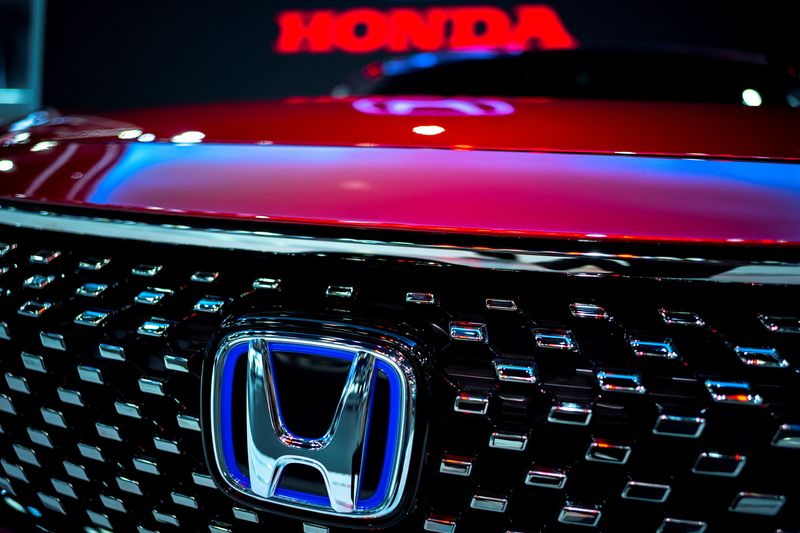(Reuters) -Honda and Nissan are in talks to deepen ties, two people said on Wednesday, including a possible merger, the clearest sign yet of how Japan's once seemingly unbeatable auto industry is being reshaped by challenges from Tesla (NASDAQ:TSLA) and Chinese rivals.
Here are comments from experts:
KOJI ENDO, SENIOR ANALYST AND HEAD OF EQUITY RESEARCH, SBI SECURITIES, TOKYO:
"If Honda (NYSE:HMC)'s hybrid cars are supplied to Nissan and Mitsubishi Motors and if they can sell them, the three companies would all be better off since that would expand the sales channel.
"The holding company scheme, rather than a merger, appears to be the key as they can minimise the risks while taking the benefits of integration.
"The question now is what will happen to Renault (EPA:RENA)'s 15% stake in Nissan. Renault may completely part ways with Nissan through selling the shares."
SANSHIRO FUKAO, EXECUTIVE FELLOW, ITOCHU RESEARCH INSTITUTE, TOKYO:
"This deal appears to be more about bailing out Nissan, but Honda itself is not resting on its laurels. Honda’s cash flow is set to deteriorate next year and its EVs haven’t been going so well. Honda itself needs to change drastically. It may need to spin off its motorcycle business and it should establish a solid financial base from engine cars. If these are made easier by a setting up a holding company (with Nissan), then that would be a positive thing for Honda.
"If their thinking is no more than 'we can manage this by getting together,' I don’t think they can survive any longer. The speed of Chinese automakers is totally different. We’re no longer in the age where carmakers would join together, churn out profits through economies of scale and then reinvest them in a five-year restructuring plan. They have no time for that."
TANG JIN, SENIOR PRINCIPAL RESEARCHER, MIZUHO BANK, TOKYO:
"Honda has a unique, technology-centric culture with strengths in powertrains, so there should be some internal resistance to the merger with Nissan, a competitor with a different culture that is now faltering.
"Honda itself doesn’t have such abundant management resources. It faces a major challenge of how it can accelerate its shift to electrification by making money from hybrids and motorcycles. Nissan, on the other hand, has no choice.
"The car industry is currently undergoing rapid changes … so if the two companies cannot make decisions and execute them in unison and at speed, they may not be able to keep up with the changes."
SEIJI SUGIURA, SENIOR ANALYST, TOKAI TOKYO INTELLIGENCE LABORATORY, TOKYO:
"Honda's internal opinion is probably split and not monolithically supportive of the merger. Because their motorcycle business is doing well. For the four-wheelers, they certainly have problems, but they weren’t in dire straits either.
"In the mid- to long-term, this is good for the Japanese car industry as it creates a second axis against Toyota (NYSE:TM). Constructive rivalry with Toyota is a positive for the rather stagnating Japanese car industry when it must compete with Chinese automakers, Tesla and others."
ATSUSHI OSAKI, CHIEF EXECUTIVE OF TOYOTA-AFFILIATED JAPANESE CARMAKER SUBARU:
"It's too much of a hurdle to do it all by one company," he said, referring to the challenge of electrification facing carmakers.
S&P GLOBAL RATINGS:
"Even if the two companies merge, it would take time for synergies to have a positive impact on their creditworthiness, in our view.
"The combined annual global sales of the two companies would exceed 7 million units, which could help cut costs through economies of scale and facilitate growth.

"As the auto industry shifts to electric vehicles, companies face heavy investment burdens, including battery manufacturing and software development.
"However, both companies have developed their businesses based on their own strategies. We therefore believe it will be difficult for them to produce significant effects quickly through expanding the scope of their collaboration to include batteries, software, and autonomous driving."